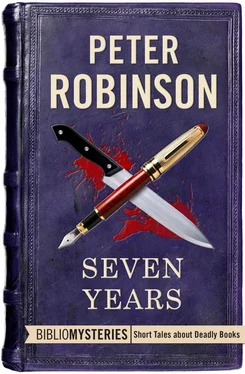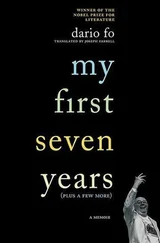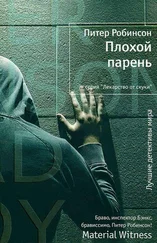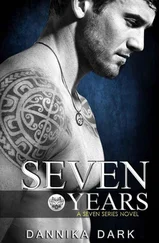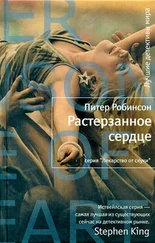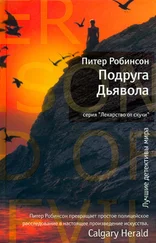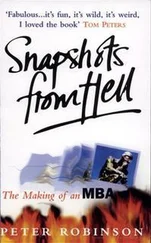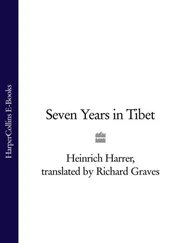Peter Robinson
Seven Years
It is one of the greatest pleasures of my retirement to set out early on a fine morning for some ancient town or city renowned for the quantity and quality of its second-hand bookshops.
Much of my enjoyment, I will admit, lies in the anticipation of what I might discover on the overflowing shelves of cramped anterooms and attics. I take my time getting to my destination, enjoying the countryside as I drive along. I also combine my book-buying expeditions with a visit to a nearby cathedral, country churchyard, or place of historic interest, and I round off my excursion with a late lunch at a local inn, where I thumb through my day’s purchases and enjoy a pint or two of ale with my meal.
Though my tastes are catholic, there are certain subjects I seek out in particular: poetry, literary criticism, and biography being prime among them. I have always been of a literary bent, and in my working life I was an academic, a Professor of Classics at Cambridge, no less. I was good enough at my job, with well-respected translations of Catullus and Ovid to my name, as well as a brief introduction to Latin verse which I am pleased to say has been adopted as a first-year university recommended text. These days, however, I prefer to spend less time poring over dead languages than I do enjoying the writers of my native tongue. Having aspired to poetry once in the long ago days of my youth, I especially enjoy reading verse and accounts of the lives of the great poets.
Naturally, with second-hand books one has to keep an eye out for damage of a physical nature and for other people’s scribblings. Underlining of text I detest, especially when it is done in ink, but though I also disdain marginalia in general, there have been occasions when I have chosen a specific copy of a book simply because of the interesting observations of a previous reader. One can feel an astonishing degree of kinship with such anonymous scribblers, whether one agrees or disagrees with them.
One fine English autumn morning, I had been wandering the streets of Beverley, a town hitherto unknown to me, on the eastern fringes of my allotted region. I had been delighted with the magnificent Gothic minster, golden in the late morning sunlight, and it was time to seek for books. I have learned over time that one will usually find the most interesting bookshops in rambling Dickensian structures hidden away in the mazes of narrow crooked alleys behind market squares and main shopping streets, so that was where I headed first.
After a delightful hour or two of exploration, I found myself carrying my weighty book bag into a pub, whose chalked blackboard promised first class food and well-kept cask ales. I bought a pint of Timothy Taylor Golden Best and ordered a plate of gammon, chips and peas and settled contentedly at a wobbly corner table in the small lounge. Rays of sunlight filtered through the windows and caught the motes of dust in their stately dance, the way that the film projectors once did with cigarette smoke in the cinema, and I was thankful that the pub was almost empty and the landlord had foregone the cacophonous allure of slot machines and piped music. As I sipped my ale and savored its bitter taste, I felt that all was well with the world, and I reached for my bag of books.
Imagine my surprise, then, when I found that the selection of Robert Browning’s poetry I had been so thrilled to find had been defaced on the flyleaf. I am usually careful enough to flip through a book before I buy it, but in this instance the pages had stuck together and that prevented me from noticing the inscription on my cursory examination in the shop. As far as I had been able to tell, the book was in mint condition; there were no signs of wear, no price-clipping or creases on the spine, and certainly no tell-tale coffee rings on the cover. In fact, it looked as if it had never been read.
Curious, I sipped some more ale and held open the flyleaf so that I might read the offending scribble:
“Miss Scott,
You know you want to read Browning’s poetry. ‘My Last Duchess’ and ‘Porphyria’s Lover’ in particular. ‘The Ring and the Book,’ too, perhaps, though that one is rather long and much abbreviated here. No poet quite captures adultery, betrayal, madness and the act of murder the way Browning does. Try this:
‘... I found
A thing to do, and all her hair
In one long yellow string I wound
Three times her little throat around,
And strangled her. No pain felt she;
I am quite sure she felt no pain.’
(‘Porphyria’s Lover’)
Then she is his forever. Don’t you just love that? Doesn’t it sound like fun? I know that I would enjoy it. And don’t forget our little bargain. The time is fast approaching!
Happy Reading, Miss Scott!
Barnes”
This highly unusual inscription sent a chill through me, despite the warmth of the day. I felt as if someone had just walked over my grave, as my mother used to say. When the serving girl brought my food and knelt to push a wad of folded beer mat under the table leg to correct the wobble, I pushed the book aside and tucked in, having hardly realized in the morning’s excitement just how hungry I was.
But as I ate, I couldn’t help but mull over what I had just read.
I realize that at this point you may well be wondering whether I am overreacting to what is, after all, merely a damaged second-hand book. After all, I could always return it to the shop for a refund, or perhaps attempt to slice out the ravaged page with a razor blade at home. I hadn’t read Browning in a long time and was looking forward to reacquainting myself with his work, but I certainly didn’t think I could enjoy reading this particular copy. It had been defiled. There was something about the tone of the inscription that disturbed me deeply. What sort of person, I wondered, would write something like that in a gift? In a volume of poetry? There seemed a definite aura of taunting cruelty about the words, a certain delight in causing another unease and discomfort. If “Miss Scott” had seen this, no wonder she had dispatched the book to a second-hand shop immediately.
“Porphyria’s Lover” had always disturbed me. I remember the frisson of forbidden delights I experienced when I first came across it in the sixth form. Could one really say this sort of thing in poetry? In that same burnished, heightened language of Shakespeare, Shelley and Keats? My pleasure was akin to the thrill of discovering Lord Rochester’s sexually explicit verse a few years later, in my student days.
There is something about the matter-of-fact nature of Browning’s use of language in “Porphyria’s Lover,” the contrast between its serene tone and the violent deed itself, the sensuality of the hair and “her little throat.” One can easily imagine the murderer sitting there, content with his handiwork, his arm around the beautiful, unfaithful lover he has just strangled, smiling, happy, convinced that he now has possession of her forever.
Perhaps the whole thing was intended as a sick joke, I told myself, but I couldn’t stop wondering who these people were, and why this Barnes fellow had written those words. Whatever had Miss Scott done to him to bring about such a deliberate desire to cause her discomfort? And how long ago had this occurred? The book could have been sitting on the shelf for years, as many volumes of poetry often do in second-hand bookshops. In the meantime, what had become of Miss Scott and Barnes? Was there a murder to be investigated?
And who had sold the book to the dealer? Miss Scott, herself? Had she even seen the inscription? It was possible that she hadn’t if the pages had been stuck in the same way they were when I flipped through the book. In which case, what had happened next? Had Barnes followed through with his veiled threat? What exactly was “the time fast approaching” for? What was their “bargain?” Was this inscription a sort of warning, or the first salvo in a campaign of terror, something to frighten her, the sort of thing one hears young people do to one another on the Internet these days? And if she had not seen it, had not got the warning, what had become of her?
Читать дальше
